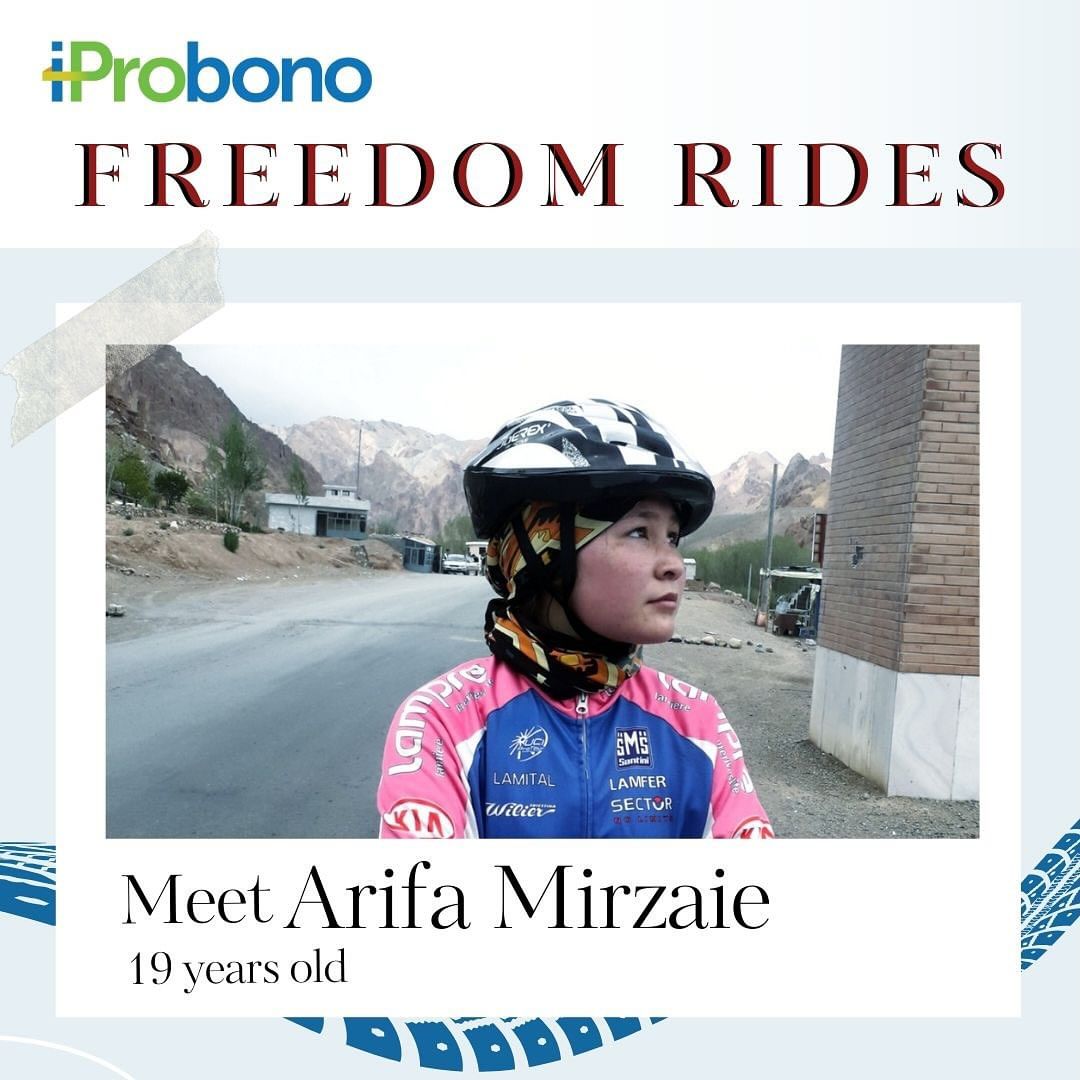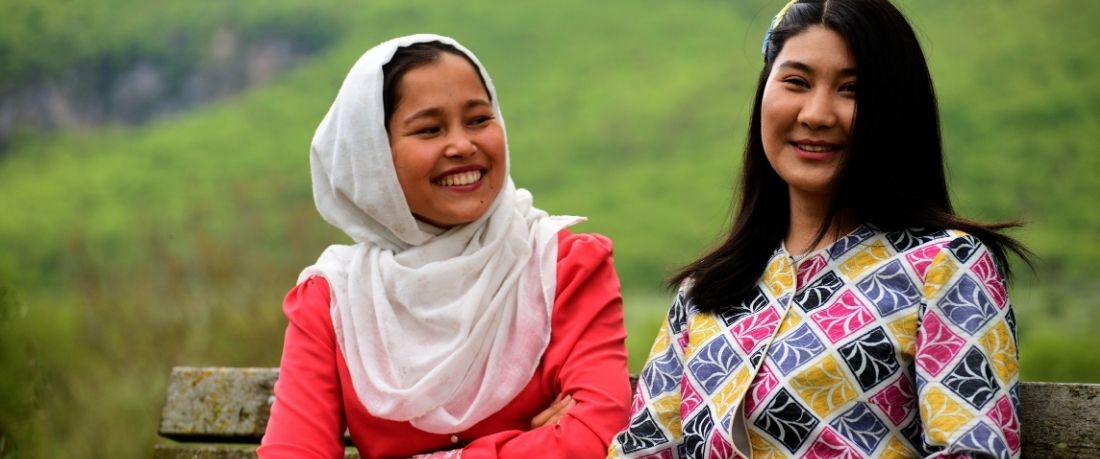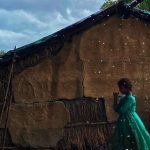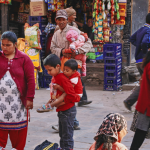In August 2021, when the Taliban took control of Afghanistan, iProbono helped evacuate and resettle over 100 Afghan citizens who were forced to flee their homes in search of temporary sanctuary in other countries, as part of our People at Risk (PAR) project.
These evacuees travelled to Pakistan on visas, where we provided accommodation and on-ground support, and then onward to various third countries that provided asylum. Over two years later, we caught up with four women from this group of evacuees, who were part of the Afghan women’s national cycling community.

Meet Habiba, a cyclist and aspiring IT specialist. Habiba’s family moved to Kabul from the province of Daikundi when she was eight years old. “My journey towards cycling began after a bomb explosion killed my friend in Kabul. Together with her brother & other family members, we all set up a library in her memory, that soon grew into an organisation. During the COVID-19 pandemic, when most things in the city were closed, the idea of forming a cycling group came from the volunteers and members of this organisation. Our aim was to make cycling something that was normal for the women of Afghanistan, and challenge gender stereotypes”. Habiba kept riding with her cycling group even after the lockdown ended, while also continuing her high school studies. After the Taliban’s takeover of Kabul in August 2021, she was forced to leave her country. “My father passed away nearly five years ago, since then my elder sister supported the family financially, along with a lot of help from my mother. I’m really close to my family so when I had to be evacuated alone, I was really depressed for a while. Not knowing the language also made things more difficult.”
Now, Habiba lives in Rome where she is learning Italian & finding ways to get admission in university. “I have lots of dreams that hopefully will come true. My first priority is to find scholarships as I cannot afford the tuition for a university course. Applying is a bit challenging for me, but I want to continue my education. I am never going to stop learning.” Habiba’s ambition is to be among the leading women of science and tech. “It’s obvious that the world of technology and AI is making changes in the world. I want to be one of the women who use science to change the world. I would also love to represent Afghan women in the world.”
In Rome, she loves going out to ride her bicycle. “In Kabul, it needed courage to ride our bicycles. Despite all the positive impact of our cycling efforts on society, there would still be some people who would say bad things to us. But here no one is bothering me, in fact some people are even encouraging us. I guess I have found the freedom to cycle. That’s what I love.”

Meet Arifa, who loves sports because of her father. Arifa’s family is from Bamiyan, in the north of Afghanistan. She and her siblings – two sisters and one brother – were introduced to the joys of playing sports by their father, who braved social taboos to support his children.
When Arifa was just 10 years old, her father helped her join a boxing class, and she was hooked. “Because he was a sportsman himself, he was also my coach. Other people used to criticise us, but he never listened. He told them ‘It’s none of your business. I’m their father and I have allowed them to do what they want.’ He has supported everything we, his daughters, have done. From boxing, she moved to a love of football and also began cycling. “ I started when I was twelve, learning on a pink bicycle that my father brought me from Iran. And when I grew up my father bought me another bike. My friend and I were the first girls in our village to cycle. In 2021, I joined the cycling team in Bamiyan and took part in lots of tournaments and races, and also rode in campaigns.”
“When I started there were no other girls playing sports, that’s why I like to change things.” After the Taliban’s takeover of Afghanistan in 2021, however, she was forced to leave the country. She now lives in Rome, where she dreams of joining the Italian national cycling team.
“On the weekends and on holidays, I tell the girls I live within the apartment, ‘Come on, let’s go out. There are so many parks, let’s have a game of football, we can make videos and take photos too if you like,” but they all refuse!’ Currently, I am playing football with an Italian girls football team, and I also got accepted into university, in the faculty of engineering.” With this, Arifa has come closer to her dream of pursuing a career in robotics. And while she misses her family and friends in Afghanistan, she feels at home riding her bicycle around her new city. “What I love about Rome is that it is so large and so free, nobody cares what you are doing. People come here from everywhere, and you can live freely.”

Meet Zahra, who began cycling in Kabul eight years ago. “I loved it so much that I kept going, despite facing warnings from the Taliban for my activities. I also started playing football three years ago and dreamed of representing my country in the Olympics.” In 2015, she learned of a cultural centre through her school, where she began doing theatre with her two sisters. “We decided to make a play about Afghan women and to portray their problems. We performed many shows, at Kabul University and the Presidential Palace and several other places.”
When Zahra was still a student, she found herself in a situation where she had to assist a neighbour during childbirth. She was able to handle the stressful situation calmly and effectively. “The admiration and encouragement I got after this occasion motivated me to learn nursing.” By the time the Taliban took over the capital city in August 2021, Zahra was already working as a nurse in a hospital. “Even after the Taliban took over, I kept riding my bicycle. But by the end of the year we were facing threats and had to hide in order to save our lives, and had to move from place to place and we could not continue our work due to these challenges.” Zahra made the difficult decision to leave Afghanistan.
Now she lives in a small town in central Italy. “It’s a small place far away from anywhere, no shops nearby, no transport.” She is busy learning Italian and finding a way to continue her studies, so she can continue her career as a midwife and nurse. To take a break, she rides her bicycle around the countryside. “Whenever I am worried or stressed, when the course is too tough and I don’t understand the language, I go for a ride.” Like in Kabul, Zahra rides around rural Italy in her customary hijab. “Here it is unusual for people to see someone with a headscarf. Once I was riding with my friends, and a man we didn’t know told me to take it off. But for me, it’s something normal, I am not going to stop.”

Meet Zuliekha, whose family moved from Ghazni to Kabul when she was seven years old. “I was busy studying in Kabul, I am very eager to learn. And I have loved sports since childhood. At first I practised Muay Thai (a form of martial arts) and I also loved cycling. At that time cycling in Kabul was very rare for girls. My brother got me a bike and taught me, and I immediately joined a cycling team and started my training.” For the last five years of her life in the capital city, Zuliekha was a part of the Afghan women’s national cycling team. That meant going for intensive training each morning, followed by school. “After school, I also worked in a beauty salon. This was my routine for every day – each morning I would go for cycle training, and each evening to work.” “When the Taliban arrived, my sister and brother and I were forced to migrate to Iran. I was in Iran for six months, which were very difficult. Finally I had to come back to Kabul and then I went to Pakistan.”
Deciding to leave home was very difficult for Zuliekha. “Kabul was like a paradise to me. I was very happy there, I was at peace. Sometimes even now, if I see some photos or videos of my home and locality, I get very emotional and can’t stop the tears.”
Now living in a small town in central Italy, she is keen to continue her studies and enrol in a university as soon as possible. “I want to study business and would like to become a successful businesswoman and an entrepreneur. I also want to continue cycling, and become a champion for Afghan women across the world.” For now, Zuliekha is learning Italian, while trying to find a way to get admission in a university course. Sometimes she feels frustrated at the bureaucratic hurdles she faces in this task, and the long process of getting her educational qualifications from Kabul accepted in her new home. But what she enjoys is the feeling of freedom that she has while cycling. “I feel really at ease, and can cycle anywhere in my sports clothes. That’s what I love.”
You can read the reflection on the institutional lessons learnt while working on the People-At-Risk projects here.
Photo credits: Mobeen Ansari / Copyright iProbono.







